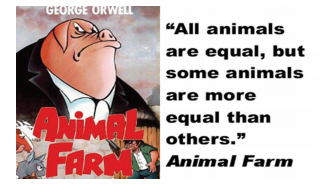Chapter: 11th Political Science : Chapter 3 : Basic Concepts of Political Science
What are the different types of equality?
What are the different types of equality?

Civil Equality
·
No
discrimination (religion, belief, etc)
Political
Equality
·
Access to
authority
·
Voting
Social
Equality
·
Opportunity
·
Privileges
Natural
Equality
·
Natural
rights
Economic
Equality
·
Wealth
(i) Social Equality
Social equality means no one
should be discriminated in the distribution of rights, privileges and
opportunities based on birth, caste, religion, race, colour, gender or social
status. Each one should be given equal opportunity to develop his personality.
Social equality implies few important aspects. They are: removal of
discrimination based on social status, absence of special privileges to few and
finally ensuring equal opportunity in terms of acquiring education. History
reveals that certain forms of social inequality world over were rejected and
the demand for social equality are being raised. Slavery in South Africa, west
Asia and America, untouchability in India, Racial discrimination n in USA against
Blacks, Policy of Hitler against Jews and gender related inequalities and
discrimination are few examples of social inequalities with countries world
over are trying to redress with the policy of government. Civil rights movement
in United States of America for Blacks by Martin Luther king Jr and
Dr.B.R.Ambedkar’s effort for the social equality for the lower caste in India
are few examples that set movement for social equality in motion.
Martin Luther king
Jr. was an unquestioned leader of nonviolent civil Rights movement in USA.
Civil right movement was a struggle for social justice happened
during the 1950s and 1960s for blacks to gain equal rights under the law in the
United states. Similarly Dr.B.R.Ambedkars liberation movement for millions of
dalits was a historic movement in India. A seed for the movement for social
equality.
The American declaration
announced that ‘all men are created equal’, French declaration of Rights of Man
and citizens declared that ‘men are born and always continue free and equal in
their rights. The United Nations organization on 10th December, 1948, declared
the charter of human rights which laid stress on social equality. However
according to the report of Amnesty International, these rights have been
violated frequently by a number of countries in the past and still efforts are
being made to address the issues of social inequality world over.
(ii) Civil Equality
The word ‘civil’ is derived from
the Latin word civilis or civis, which means citizen. Civil equality means
equality in which each citizen is provided with equal civil rights and
liberties. Civil equality consists of similar civil liberties and civil

There should not be any
discrimination of superior and inferior, the rich and the poor, caste and
creed, colour and race, clans and tribes, groups and classes. In England, Rule
of law is in force and in the eyes of the rule of law all are equal. Equal
treatment is given to all by the rule of law. It is from the British
constitution India had adopted the rule of law.
(iii) Political Equality
Political Equality means equal
right of all citizens, without any distinction, allowed to participate in the
affairs of the state. Political right of all citizen is ensured through
universal adult franchise. The other factors that ensure the political rights
of citizens are:
·
Right to vote
·
Right to contest in election
·
Right to hold public office
·
Right to petition the government
and criticize public policy
Political equality guarantees the
enjoyment of similar political rights to all citizens. Universal adult
franchise is a means to this end. Political equality is actually the test on
the experiments of democracy. It is also believed that political equality in
itself is not adequate to disperse political power, it also needs
socio-economic equality to achieve political equality.
(iv) Economic Equality
Economic equality is justifiable
only when all people have reasonable opportunities to develop themselves fully.
Economic equality is meaningful only when there is an adequate scope for
employment, reasonable wages, adequate leisure and equal share in the
management of economic concern. Professor Laski explains economic equality,
“Political equality is, therefore, never real unless it is accompanied with
virtual economic liberty; political power otherwise is bound to be the
hand-maid of economic power”.
Economic equality here means the
provision of equal opportunities to all so that they may be able to make their
economy progress. Ideologically this is possible in Socialism and not in
Capitalism.
(v) Equality of opportunity and education
Equality of opportunity and
education means, all the citizens should be given equal and similar opportunities
by the state. All the citizens should have similar chances to receive education
and equal opportunities be given to develop their personality. Social
inequalities such as race, caste, religion, language, rich, poor and gender
based discrimination should be eradicated. In India, constitution provides
provisions for equal opportunities and equal education.
Related Topics